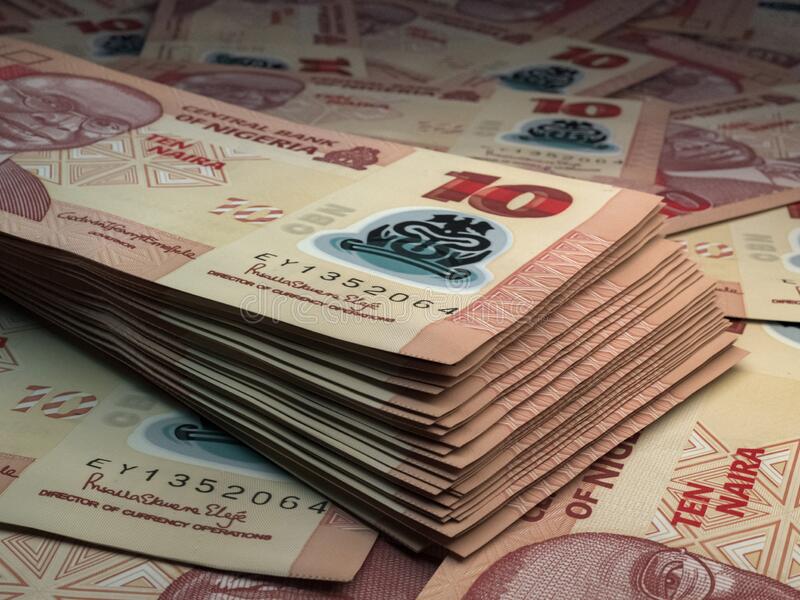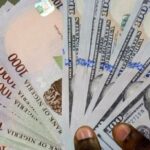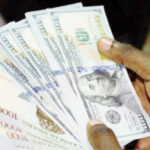The naira, our naira, is under pressure and there is no immediate end in sight. Indeed, what is happening to the currency right now will continue until all the forces at play reach a stasis point, but because they have built up over a long time, that correction point is unlikely to be attained soon.
But the naira is not alone. Globally, currencies are in turmoil this year. Indeed, the naira has actually not done badly, given what has been happening to currencies around the world.
- Come together, build greater continent, Obasanjo tells Africans
- 2023: Atiku has the solution to needs of Ndigbo – Obiora Okonkwo
Near home, Ghana’s cedi has been tagged as the worst-performing currency. It started the year at about six to a dollar and now exchanges for 13. Similarly, the Japanese yen has fallen significantly against the dollar. Many people will recall how the yen maintained almost a fixed rate against the dollar for years, with its rate ranging between 110 and 120 to the dollar. Today, the story has changed. The yen opened the year at 115 to a dollar; today, it exchanges at 148 to the green back, a historical low for the Japanese currency.
These exchange rate challenges are traceable to the impacts of the Russia-Ukraine war and the COVID-19 slowdown on the world economy. The world is yet to get out of it.
But the rapid deterioration in the value of the naira over the past few days is a fallout of the announcement by the Central Bank of Nigeria that it’s redesigning the local currency. This has sparked a flight into safety of the dollar by those who have found themselves holding unto hordes of naira notes. They want to hedge against future losses so the dollar offers a sure haven for them.
The snag however is that the physical dollar bills have vanished! The problem is not with the US dollar as a currency; the problem is that physical dollar bills are not in Nigeria anymore. So, when people take their naira cash to buy cash dollars, what they face is not an exchange rate problem; it is a physical dollar availability problem. They have dried up!
Before now, if you wanted to travel, you would apply to your bank for your BTA and after you go through your processes, the bank would give you physical dollar bills for you to put in your physical wallet. Not anymore. Now, they load your card with dollars and tell you to go and spend from the card.
The reason is also clear. A lot of the dollars that flooded Nigerian streets actually came from the BDCs via the CBN. Every week then, the central bank would pump some $110m in dollar bills into the system. Everyone knew about this. And this went on for at least three years. BDCs were not collecting forex inflows wired into their accounts. No; they collected physical dollar notes and then began to sell these. BDCs were everywhere – they were about 5,500 of them licensed by the monetary authorities. The CBN flooded the BDCs with dollars for about three years.
Under that arrangement, the BDCs were the channel through which the physical dollar entered the economy. That was for a purpose. It led to some form of stability in the exchange rate of the naira for quite a long time. It was done on purpose. Now, was that the best policy option? The answer is debatable.
Now, everyone knows that the dollar supply to the BDCs was not sustainable and so it has dried up. That ended last July, about 15 months ago, when the CBN stopped feeding the BDCs, and since then there has been no bulk physical dollar entering the system. And since we are going cashless, CBN is not likely to be spending a lot of naira to import the dollar.
What has replaced the BDCs as the channel dollars into the system? It’s not clear now what that replacement is, which explains the current scarcity of physical dollars.
Where are the physical dollar notes in the country now? They are not in the banks. So, where are they now? These are the questions to ask now.
Those notes have found their way into people’s soakaway, tanks, while some have been taken out of the country. They have finished. But the central bank is not spending the naira to import dollars.
This has also been compounded by the politicians who use the dollar bills for their big-time politicking. But the time for the dollar in politics is slightly past. Usually, from the reports we have had over the years, it is the big guys who vote at party conventions that are usually given dollar inducements; other participants such as voters and other errand boys can make do with some chunks of our naira, perhaps.
So, over the next 12 weeks or so there will be a waiting game for such persons. Those with significant naira volumes do not want to risk attracting attention to themselves by making large lodgements into their naira accounts, which could lead to their accounts being frozen by the authorities. Therefore, some will wait till the coast is clear and they would try the banks to see how much in the new naira notes they can get.
Until that time comes, the logical thing for such a person to do is to abandon their naira account and convert it to cash. This is the reason for the pressure now on the naira, because there is now an oversupply of the naira in the underground foreign exchange market, chasing a depleted dollar supply.
By January, such people hope to start selling their dollars in the new naira notes. That’s the logical thing to do. The politically exposed persons will want to keep their money in dollars. It is very senseless to keep those notes; you have to dump them quickly.
But it must be clear that the politicians are not likely to bring out their old dollar bills now to spend. Not quite likely. They are more likely to dig into their naira bags and buy existing dollar bills, no matter the cost now. This again will contribute to the rising cost of the dollar, which is now reflected in the falling value of the naira.
Already, there has been a realignment in the inflow and cash costs in the market. Whereas before the inflow cost was higher, now the cash cost is higher because dollar cash has been scarce since the BDCs through which they entered the market are no more there.
Right now, dollar cash is king. The few who have it and are willing to sell will continue to dictate the rate at which the naira will exchange, and for long will the troubles of the naira last.



